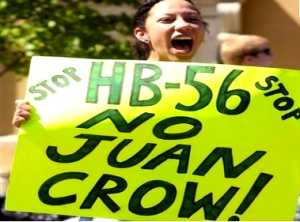 Many young immigrants celebrated when President Obama implemented a new program that would defer the deportation of young, undocumented immigrants. According to a recent article in The Chicago Tribune, however, many young immigrants have yet to apply for the program’s protections.
Many young immigrants celebrated when President Obama implemented a new program that would defer the deportation of young, undocumented immigrants. According to a recent article in The Chicago Tribune, however, many young immigrants have yet to apply for the program’s protections.
Potential applicants must demonstrate “continued presence” within the United States for at least five years. After living and working under the radar for so many years, however, many immigrants who have lived in the United States for five years or more are having difficulty assembling the necessary documentation.
Furthermore, many young immigrants are waiting to file until after the 2012 presidential election. They fear that a Romney Administration would put them in danger by canceling or modifying the executive order.
Beyond worrying about themselves, many of those who qualify for the program are also worried that identifying themselves as undocumented immigrants may put their family members who do not apply for deferment at risk of deportation.
Since the federal government began accepting applications, there have been approximately 180,000 requests submitted. The United States Citizenship and Immigration Services reports that 4,591 have been granted. The Pew Hispanic Center estimates that 1.7 million people are potentially eligible for the program.
Immigration attorney Laura Lichter is not surprised at the slow pace of applicants. Stated Lichter, “I look at my own cases, and it took me two weeks to pull in documents for the simple ones.”








